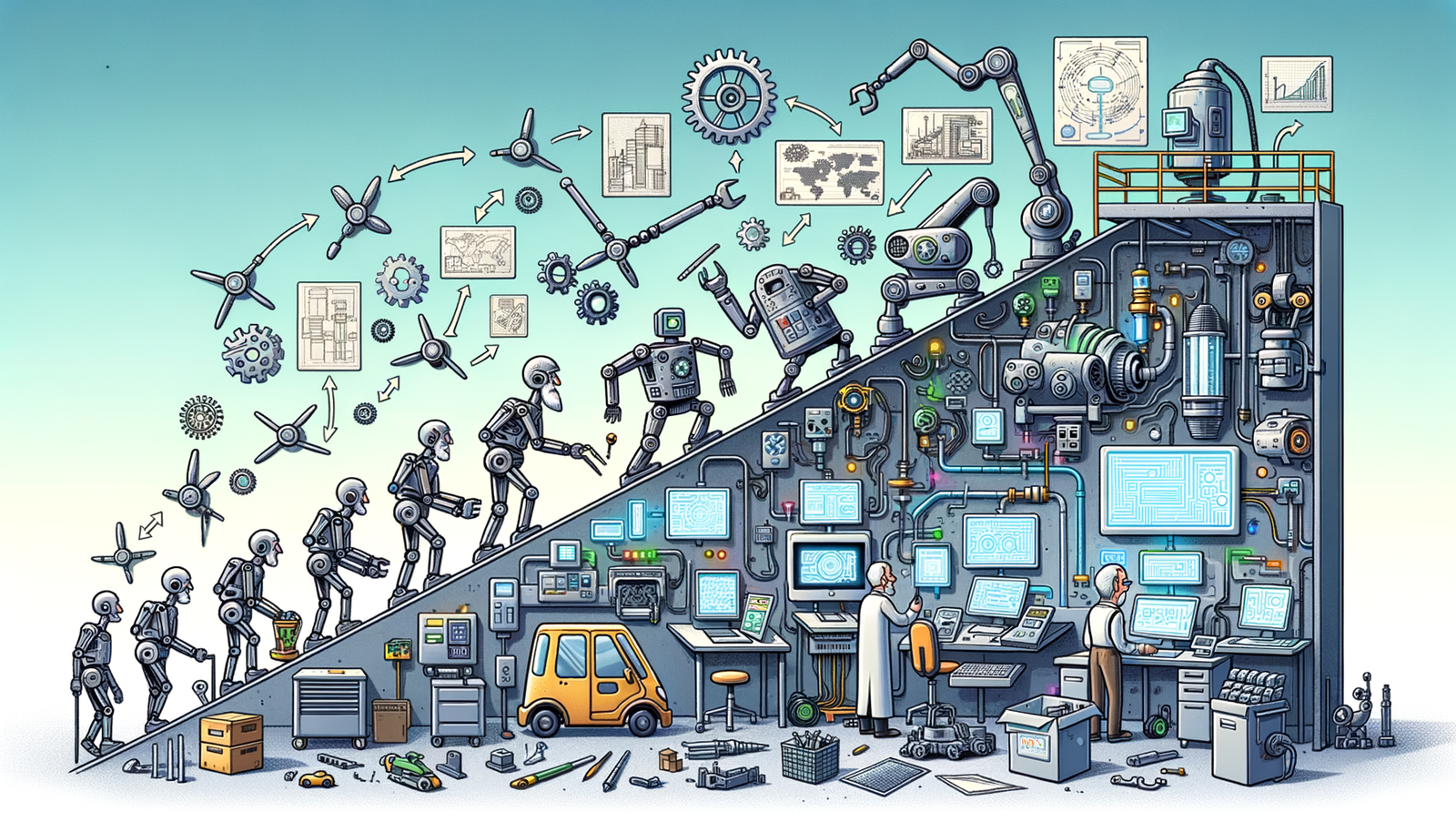Your Cart is Empty
Customer Testimonials
-
"Great customer service. The folks at Novedge were super helpful in navigating a somewhat complicated order including software upgrades and serial numbers in various stages of inactivity. They were friendly and helpful throughout the process.."
Ruben Ruckmark
"Quick & very helpful. We have been using Novedge for years and are very happy with their quick service when we need to make a purchase and excellent support resolving any issues."
Will Woodson
"Scott is the best. He reminds me about subscriptions dates, guides me in the correct direction for updates. He always responds promptly to me. He is literally the reason I continue to work with Novedge and will do so in the future."
Edward Mchugh
"Calvin Lok is “the man”. After my purchase of Sketchup 2021, he called me and provided step-by-step instructions to ease me through difficulties I was having with the setup of my new software."
Mike Borzage
Design Software History: Influence of Smart Manufacturing on the Evolution and Integration of CAD/CAM Systems
July 20, 2024 3 min read


Introduction to Smart Manufacturing
Definition and Overview
Smart Manufacturing represents a paradigm shift in the manufacturing sector, driven by the integration of advanced technologies such as the Internet of Things (IoT), Artificial Intelligence (AI), Machine Learning (ML), Big Data, and Robotics. This new approach aims to create highly flexible manufacturing processes that can rapidly respond to changes in demand, production capabilities, and operational conditions.
Key technologies involved in Smart Manufacturing include:
- IoT: Facilitates real-time data collection and sharing across devices and systems.
- AI and ML: Enable predictive maintenance, quality control, and optimization of processes.
- Big Data: Provides insights through analysis of large datasets, improving decision-making.
- Robotics: Enhances automation and precision in manufacturing tasks.
Historical Context
The journey from traditional to smart manufacturing has been marked by significant milestones. Initially, manufacturing was labor-intensive with limited automation. The introduction of Computer Numerical Control (CNC) machines marked the first major shift towards automation. The advent of CAD/CAM systems further revolutionized manufacturing by integrating design and production processes.
Early adopters of smart manufacturing technologies include industry giants such as General Electric and Siemens. These companies recognized the potential of integrating digital technologies to enhance manufacturing efficiency and product quality.
The Synergy Between Smart Manufacturing and CAD/CAM Systems
Integration of Smart Manufacturing Technologies with CAD/CAM
The integration of IoT and sensor data with CAD/CAM systems has significantly enhanced the design and manufacturing processes. IoT devices collect real-time data from manufacturing environments, which can be fed back into CAD/CAM systems to optimize designs and manufacturing parameters.
AI and Machine Learning play crucial roles in optimizing CAD/CAM workflows. These technologies can analyze vast amounts of data to identify patterns and predict potential issues. For instance, AI can suggest design modifications to improve manufacturability or predict tool wear, allowing for proactive maintenance.
Case Studies
Successful integrations of smart manufacturing technologies with CAD/CAM systems can be observed across various industries, including automotive, aerospace, and consumer electronics. Key companies, such as Siemens, Dassault Systèmes, and PTC, have been at the forefront of these advancements.
For example, Siemens' MindSphere platform enables the integration of IoT data with their CAD/CAM solutions, providing real-time insights and predictive analytics. Dassault Systèmes’ 3DEXPERIENCE platform leverages AI and ML to enhance collaborative design and manufacturing processes.
Technological Advancements and Their Impact
Enhanced Design Capabilities
One of the most significant impacts of smart manufacturing on CAD/CAM systems is the enhancement of design capabilities. Real-time data feedback loops enable designers to make informed decisions during the design process. Predictive analytics can forecast potential issues, allowing for early intervention and reducing the need for extensive prototyping.
Improved Manufacturing Processes
Smart manufacturing technologies have also led to improved manufacturing processes. Automation of CAM operations through AI and robotics has reduced human error and increased production efficiency. Real-time monitoring and predictive maintenance have minimized production downtime and improved overall equipment effectiveness.
Notable Innovations
Several innovations in CAD/CAM software have emerged as a result of smart manufacturing technologies. For example, generative design tools use AI algorithms to create optimized designs based on specified constraints. Advanced simulation tools allow for virtual testing of designs, reducing the need for physical prototypes.
These innovations have fundamentally changed the landscape of CAD/CAM, enabling more efficient and effective design and manufacturing processes.
Future Trends and Challenges
Emerging Trends
Looking forward, several emerging trends are expected to shape the future of smart manufacturing and CAD/CAM systems. Quantum computing holds the potential to solve complex optimization problems much faster than current technologies. Advanced robotics and automation will continue to evolve, further enhancing manufacturing capabilities.
Challenges and Considerations
Despite the potential benefits, the integration of smart manufacturing with CAD/CAM systems presents several challenges. Technical challenges include the need for robust data integration and interoperability between different systems. Operational challenges involve managing the cultural shift required to adopt these new technologies.
Security concerns and data management issues are also critical considerations. As manufacturing systems become more connected, they become more vulnerable to cyber-attacks. Ensuring data integrity and protecting sensitive information are paramount.
Conclusion
In conclusion, the influence of smart manufacturing on CAD/CAM systems has been transformative. The integration of advanced technologies like IoT, AI, and robotics has enhanced design capabilities, improved manufacturing processes, and led to notable innovations. However, challenges remain, particularly around technical integration and security. As the industry continues to evolve, the potential for continued innovation and improvement is vast, promising exciting developments in the future.
Also in Design News

Rhino 3D Tip: Diagnose Naked, Boundary, and Non‑Manifold Edges with ShowEdges
January 13, 2026 2 min read
Read More
Revit Tip: Revit Plotting Best Practices: Standardize Line Weights and Print Setups
January 13, 2026 2 min read
Read MoreSubscribe
Sign up to get the latest on sales, new releases and more …



